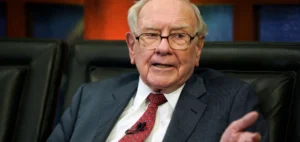British oil giant BP has announced a sharp fall in net profit for the first half of 2024, recording a 79% drop to $2.1 billion.
The decline is attributed mainly to asset write-downs and lower refining margins.
Sales also fell by 8%, to $98 billion.
Despite these lower results, underlying earnings at replacement cost, a key measure followed by the markets, showed a more modest decline.
Murray Auchincloss, BP’s Chief Executive, said the company is focusing on reducing costs and building a simpler, value-driven business strategy for 2025.
Corporate strategy and outlook
For the third quarter, BP expects lower oil and gas production than in the second quarter and fuel margins sensitive to variations in supply costs.
Despite these challenges, BP has decided to increase its dividend by 10% and extend its share buyback program into the fourth quarter.
At the beginning of the year, BP had already seen a drop in earnings due to the fall in hydrocarbon prices, compared with the record levels seen at the start of the war in Ukraine.
In July, BP had warned that its half-year results would suffer from unfavorable after-tax adjustments of between $1 and $2 billion, linked to asset write-downs, notably for the conversion of the Gelsenkirchen refinery in Germany.
Impact of transformation measures
In March, BP announced its intention to reduce production capacity at the Gelsenkirchen refinery from 2025, while increasing production of low-emission fuels.
However, BP warned that its refining margins would be significantly lower quarter-on-quarter and that its oil sales would be down.
The NGO Global Witness criticized BP, accusing the company of prioritizing profits and dividends over the fight against climate change, as the world faces record temperatures.
Market reactions and long-term outlook
BP shares were up 2.32% at 463.65 pence in early trading, buoyed by redistributions to investors and better-than-expected results.
Since the start of the year, the stock has edged down 0.12%.
Andrew Keen, analyst at Edison, commented that BP is seeking to regain investor confidence while facing challenges to cut costs and maintain share buybacks.
Victoria Scholar, analyst at Interactive Investor, pointed out that BP is adjusting to a period of more normal results after the 2022 energy crisis.
Since Murray Auchincloss took the helm at BP, the company has scaled back its green energy projects to focus on oil and gas, with projects such as the Kaskida well in the Gulf of Mexico scheduled for 2029.
This strategy marks a change from the approach of former CEO Bernard Looney, who emphasized energy transition and carbon neutrality.





















